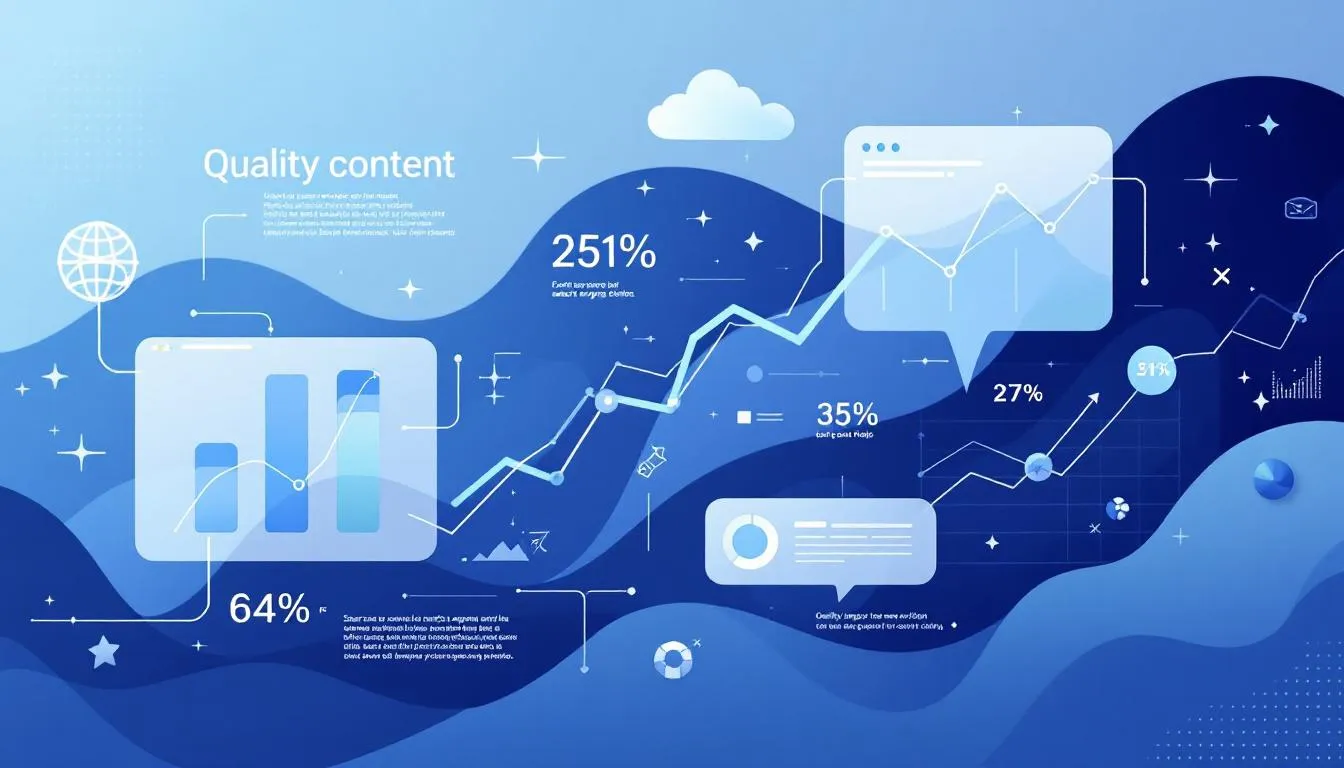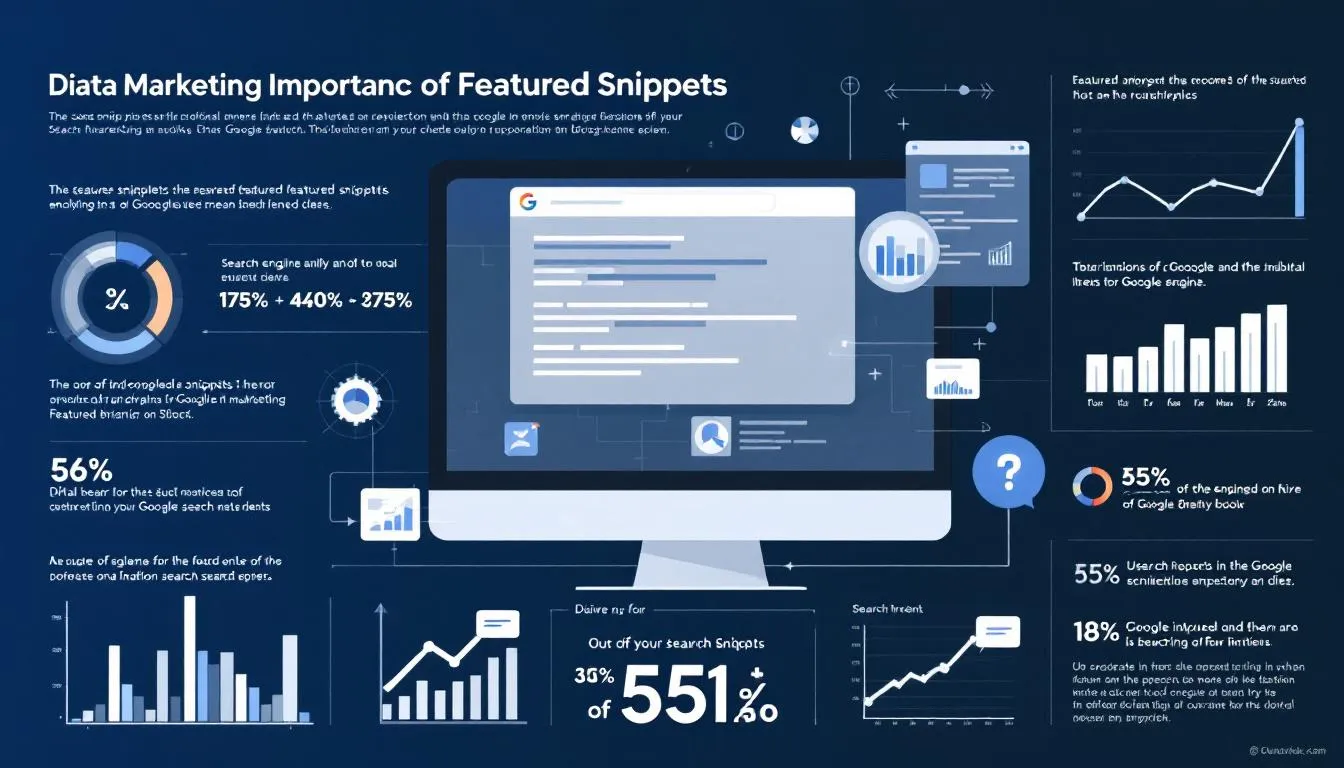Key Takeaways
- Understanding Google search involves three key steps: crawling, indexing, and ranking. Familiarizing yourself with these processes is crucial for effective SEO strategies.
- Keyword research is essential for SEO success. It helps identify what potential visitors are searching for, allowing you to align your content and improve your rankings.
- High-quality content and user engagement are vital. Creating original, informative content leads to better search rankings and encourages longer visits, while optimizing your Google Business profile can enhance local visibility.
Understanding How Google Search Works

Understanding how Google search works is a fundamental step. Google uses a complex process involving crawling, indexing, and ranking to determine how search engines understand which web pages appear in search results.
Crawling is the first step, where Googlebot, an automated program, discovers new and updated pages on the web. This process ensures that Google sees as much of the internet as possible. However, not every page that Google crawls will be indexed.
Indexing is a process where Google analyzes the content and stores related relevant information in its database, and only high-quality content makes it into Google’s query database.
Finally, Google’s algorithms play a vital role in ranking these relevant pages and determining their ranks. They consider numerous factors, including user queries, location, and device type. Understanding these processes helps you align your strategies to improve your search factor rankings effectively.
The Importance of Keyword Research
Keyword research is the cornerstone of any successful SEO strategy. It involves identifying specific keywords that potential visitors are searching for and then aligning your content with these queries. This practice significantly impacts your rankings on Google search results.
Tools like Semrush and Google Keyword Planner provide valuable data on search volume and competition, helping you refine your keyword strategy. Understanding search intent—whether a keyword is used for informational or transactional purposes—enables you to create more relevant content.
Competitor analysis is another crucial component. Examining effective keywords used by your competitors can provide valuable insights. Incorporating these keywords into your content, meta descriptions, and headers optimizes your website for search engines.
Creating High-Quality Content

High-quality content is key to SEO success. Rather than stuffing articles with keywords, focus on providing original insights and thorough descriptions that genuinely assist your audience. Content should be engaging, informative, and free from duplicate content.
Adding high-quality images and videos can significantly enhance your content, making it more appealing and engaging. Quality content that meets user needs not only improves your search rankings but also encourages longer site visits and lower bounce rates.
Moreover, Google’s algorithms prioritize content created primarily for the benefit of users rather than solely for search engines. This means your main title should accurately reflect the subject matter without sensationalism. Trustworthiness is also crucial, so be sure to cite authoritative sources alongside your brand to increase contextual authority.
Optimizing Your Google Business Profile

An optimized Google Business profile is invaluable for local search success. Accurate business information, including your name, address, and phone number, can significantly impact your visibility in local search results on Google Maps.
To enhance your business profile:
- Add high-quality photos and videos to increase customer interest and engagement.
- Engage with reviews to positively affect your business’s credibility and visibility in local searches.
- Keep your business hours and other essential information up-to-date to ensure Google sees your profile as reliable and relevant.
Building High-Quality Backlinks

Backlinks are like votes of confidence from other websites, signaling to Google that your content is credible and valuable. High-quality backlinks can significantly enhance your site’s credibility and improve search rankings, creating a strong link to your online presence.
Attracting backlinks involves creating valuable content like research reports, infographics, and in-depth guides. Guest posting on authoritative websites is also an effective way to earn quality backlinks.
Quality backlinks significantly boost your rankings and contribute to increased referral traffic. Creating valuable content attracts backlinks and social shares, broadening your reach and visibility across platforms.
Enhancing On-Page SEO
On-page SEO involves optimizing individual pages to improve their search rankings and drive organic traffic. This includes optimizing title tags, meta descriptions, and URLs.
The clarity and relevance of title tags can significantly impact both user engagement and SEO performance. Regarding meta descriptions:
- A well-crafted meta description enhances user engagement by providing a clear preview of page content.
- Meta descriptions should ideally be limited to around 155 characters to avoid being truncated in search results.
- Using focus keywords within meta descriptions can make them more appealing.
Ensuring that url is user-friendly and search engine-friendly is also essential. Descriptive URLs help users navigate the content of the page and can appear in search results as breadcrumbs.
Making Your Site Mobile-Friendly
In today’s digital world, mobile-friendliness is crucial for SEO success. Google prioritizes the mobile version of your site for indexing and ranking. Your site needs to be responsive. It should display correctly on different screen sizes and be compatible with screen readers.
Google emphasizes responsive design as the preferred method for mobile optimization for mobile users. Mobile-friendly sites enhance user engagement and satisfaction, leading to improved performance, lower bounce rates, and a higher click through rate.
Improving Page Speed
Fast loading times enhance user experience and search rankings, contributing to overall site performance. Aim for a page load speed of a few seconds or faster. Reducing image sizes can significantly decrease load times.
Techniques to improve web page load times include:
- Minifying CSS and JavaScript to streamline web pages for faster loading.
- Using browser caching to allow users to load your page faster on subsequent visits.
- Employing content delivery networks (CDNs) to improve load times by distributing content closer to users.
Implementing lazy loading for images and videos can improve initial page load speed. Mobile-friendly designs lead to faster loading pages, better performance, and lower bounce rates.
Remember, Good Solutions are the experts that can help with everything that is being explained: www.goodsolutions.tech.
Leveraging Featured Snippets

Featured snippets provide quick, relevant answers to users, often appearing at the top of search results. For a realistic chance of being chosen for a featured snippet, your page must rank on the first page of Google and deliver relevant results.
Featured snippets come in four primary formats:
- Definition boxes
- Tables
- Ordered lists
- Unordered lists
Optimizing your content to match the snippet type Google displays can increase your chances of being featured. A concise tip, with direct answers of 40-60 words, can help gain a definition box featured snippet.
Encouraging Positive Reviews
Positive customer reviews boost credibility and improve search rankings. They act as digital trust signals and enhance brand credibility, attracting more potential customers and creating a positive experience.
Encouraging customers to leave reviews can lead to a 12% increase in review submissions. Businesses can do this by including links in confirmation emails and utilizing QR codes to encourage customers. Responding to reviews helps engage customers and can improve local search visibility.
Summary
In conclusion, reaching the top of Google search results requires a multifaceted approach. By understanding how Google search works, conducting thorough keyword research, creating high-quality content, optimizing your Google Business profile, and building high-quality backlinks, you can significantly improve your search rankings.
Additionally, enhancing on-page SEO, making your site mobile-friendly, improving page speed, leveraging featured snippets, and encouraging positive reviews are all essential strategies. Implementing these tips will help you climb the ranks and achieve greater visibility and success online.
Frequently Asked Questions
What is the first step in improving my Google search rankings?
To improve your Google search rankings, start by getting familiar with how Google crawls, indexes, and ranks websites. Understanding these basics will set a strong foundation for your SEO efforts.
How important is keyword research for SEO?
Keyword research is super important for SEO as it helps ensure your content matches what people are actually searching for, directly affecting your rankings on Google. Without it, you might miss out on valuable traffic!
Why is creating high-quality content important for SEO?
Creating high-quality content is crucial for SEO because it meets user needs, keeps visitors on your site longer, and helps your content rank better in search engines. Focusing on quality can lead to more traffic and visibility for your site.
How can I optimize my Google Business profile?
To optimize your Google Business profile, make sure your business information is accurate, add high-quality photos and videos, and actively engage with customer reviews. This will help boost your visibility in local searches!
What are the benefits of encouraging positive reviews?
Encouraging positive reviews really pays off by boosting your credibility and improving search rankings, which ultimately attracts more customers. It’s a simple way to build trust and grow your business!
#GoogleSearchRanking #SEO #KeywordResearch #GoogleSEO #SearchOptimization #Crawling #Indexing #Ranking #Semrush #GoogleKeywordPlanner #ContentMarketing #HighQualityContent #MetaDescriptions #TitleTags #GoogleBusinessProfile #LocalSEO #Backlinks #GuestPosting #OnPageSEO #MobileFriendly #ResponsiveDesign #PageSpeed #LazyLoading #CDN #FeaturedSnippets #PositiveReviews #OnlineCredibility #LocalSearch #BoostRanking #GoodSolutionsTech
